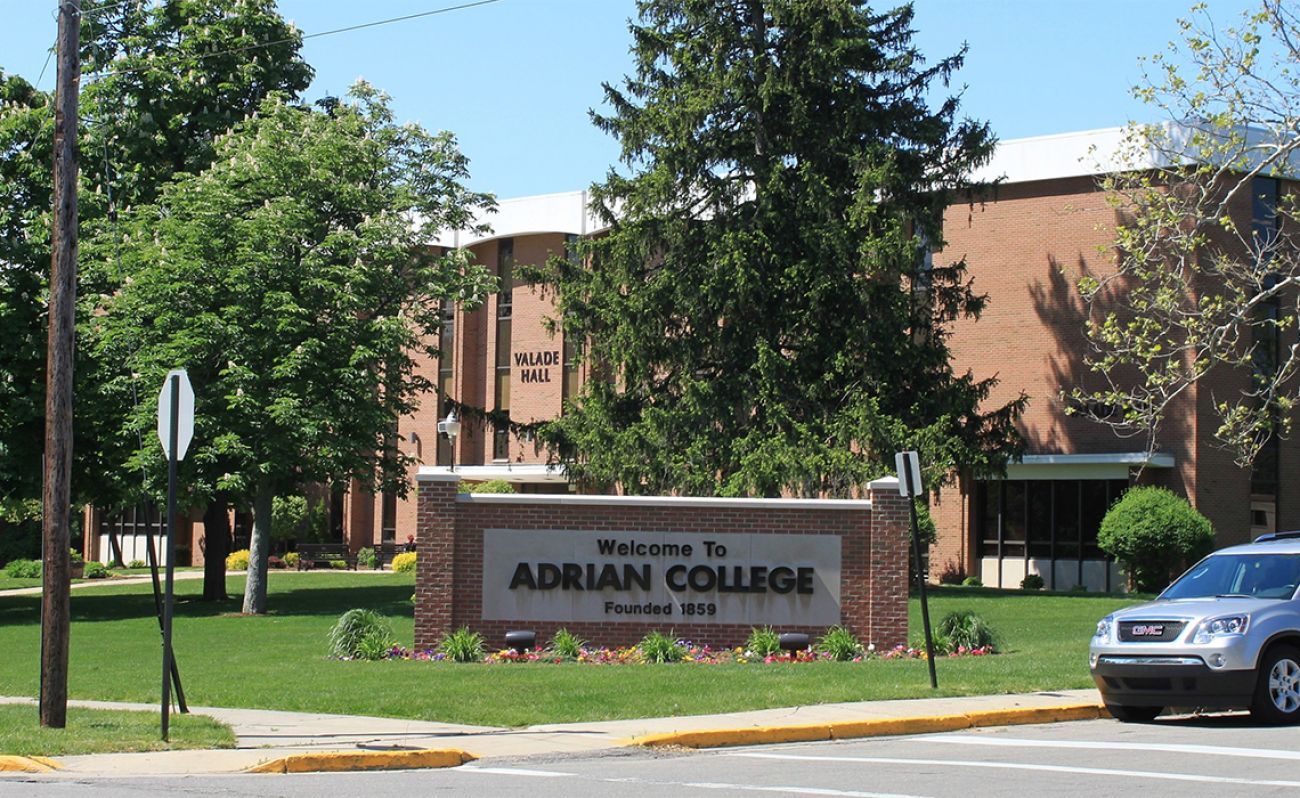From CMU to tiny Adrian, COVID-19 keeps marching through Michigan colleges

Confirmed and probable coronavirus cases at Central Michigan University in Mount Pleasant surpassed 200 Tuesday. Two hours south, near the Ohio border, tiny Adrian College announced that more than 6 percent of its students and staff had tested positive for the potentially deadly virus.
Farther west, Kalamazoo College decided last week not to wait until students returned to campus to move classes online because of fears of the spread of COVID-19, following similar decisions at Michigan State University and Eastern Michigan University.
Despite months of planning and tens of millions of dollars in safety protocols, Michigan’s colleges and universities are discovering they can’t escape the impact of the coronavirus that has sickened more than 100,000 Michigan residents and killed almost 6,500 in less than six months.
Related:
- COVID-19 at your Michigan school? Odds are, nobody is required to tell you.
- Health emergency declared as COVID spreads at Central Michigan University
- Fear of COVID outbreaks forces Eastern Michigan University online — for now
- The latest: Michigan coronavirus unemployment, map, curve, updated COVID-19 news
- Dashboard: Michigan coronavirus testing numbers, trends, COVID-19 data
Some schools have scrambled to adjust plans in recent weeks, moving more or all classes online and encouraging students to stay in their hometowns. Others like CMU and Adrian are soldiering on with fall semesters that include at least some classes on campus, setting up wings of dorms as COVID quarantine centers for the infected.
“A lot of this is inevitable,” said Colby Cesaro, vice president of Michigan Independent Colleges & Universities, which represents the state’s nonprofit independent colleges and universities. “It’s such a trying time for every institution.”
Michigan’s college and universities closed campuses in March to stem the spread of COVID-19, with classes moving online for the remainder of the last school year. Most four-year colleges and universities in the state announced plans this summer for students to return to campus, with exhaustive health protocols that typically included face masks, social distancing in classrooms and dining halls, and increased options for single-person dorm rooms.
Still, there has been a troubling uptick in coronavirus cases in some counties where universities have reopened, such as Isabella County (CMU) and Lenawee County (Adrian College).
Two weeks after students began moving back to Adrian, the 1,800-student private college reported 139 current, confirmed cases of COVID-19 as of Monday. That means 6 percent of all students and staff have a current coronavirus infection, according to a report released by the university.
Among those cases, 111 are now in isolation in campus housing.
Adrian College officials did not return emails and phone calls Tuesday seeking comment.
According to a news release Tuesday from the Lenawee County Health Department, which includes Adrian, the number of confirmed COVID-19 cases among people aged 18-24 increased from 3 to 57 in one week. That number will continue to go up – the health department said not all of Adrian College’s cases are included in the statistics released Tuesday because of a lag in reporting.
Siena Heights University, also located in Adrian, has two current confirmed coronavirus cases among its 2,200 students, according to the Lenawee health department.
Central Michigan University has been battling a coronavirus outbreak since classes began Aug. 17. The outbreak began with house parties on the opening weekend of school, according to local health officials, and was at first limited to off-campus students, but has now spread to at least eight dorm residents.
As of Tuesday, there were 190 confirmed cases linked to students returning to CMU, and another 15 probable cases, according to the Central Michigan District Health Department.
Some colleges are beginning classes this week, so there could be more outbreaks by mid-September.
Cesaro said Michigan’s private colleges and universities have spent $25 million preparing campuses for students during the pandemic, and that they are following their protocols to try to keep students and staff safe. Closing campuses and sending students home for the semester would cost even more, with schools losing revenue from housing and dining.
Still, Cesaro said money is not the main motivating factor for colleges that are attempting to keep students on campus.
“It’s not losing a year of room and board revenue – it’s if you lose a student from a first or second year [of college], there’s a risk they will never come back, especially among lower-income students,” Cesaro said.
Eastern Michigan President James Smith told Bridge recently that he struggled with the decision to move classes online for the beginning of the semester at the Ypsilanti campus.
“All of us were watching these openings around the country,” Smith said, mentioning the University of North Carolina and the University of Notre Dame, both of which started with in-person instruction and quickly pivoted to online classes when coronavirus cases skyrocketed.
“We didn’t feel we were robust enough with testing,” Smith said. “We needed to go back into the marketplace and get more testing.”
Eastern now plans for students to return to campus Sept. 21. How confident is Smith that will happen?
Smith laughed. “I think we’ve done the wise and prudent thing [to delay students’ return to campus]. “I wish I could tell every reader that we knew what was going to happen on the 21st, but we don’t.”
Michigan Education Watch
Michigan Education Watch is made possible by generous financial support from:
Subscribe to Michigan Education Watch
See what new members are saying about why they donated to Bridge Michigan:
- “In order for this information to be accurate and unbiased it must be underwritten by its readers, not by special interests.” - Larry S.
- “Not many other media sources report on the topics Bridge does.” - Susan B.
- “Your journalism is outstanding and rare these days.” - Mark S.
If you want to ensure the future of nonpartisan, nonprofit Michigan journalism, please become a member today. You, too, will be asked why you donated and maybe we'll feature your quote next time!






